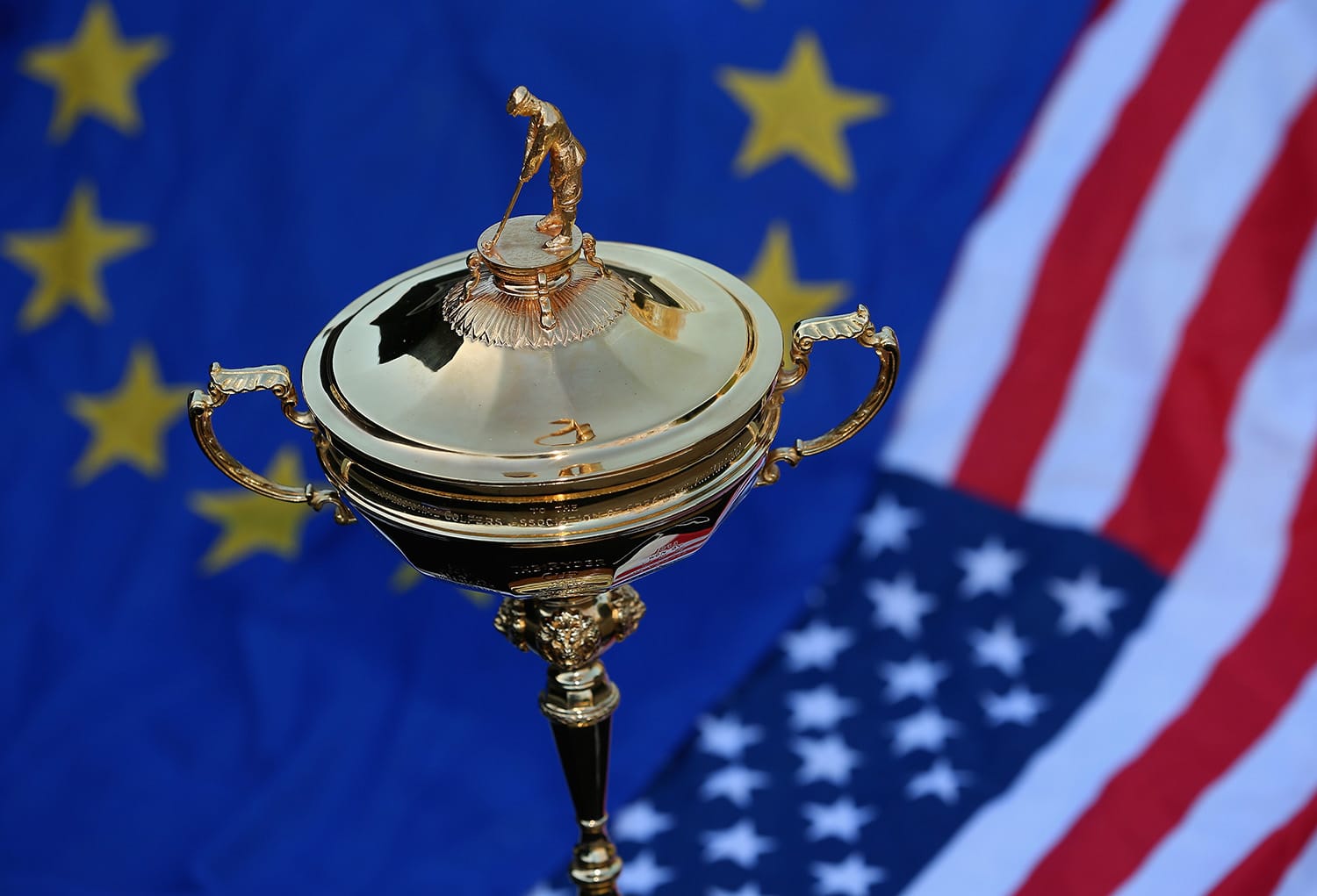The Ryder Cup: Golf's Most Thrilling Team Battle - A Complete Guide for New Golf Enthusiasts

Introduction
"It's not about the money. It's about the glory, the pride, and playing for something bigger than yourself." - Patrick Reed
For newcomers to golf, the Ryder Cup can seem like a puzzling departure from the usual tournament format you see on TV. If you've recently started taking lessons or are getting more serious about golf, this guide will help you understand why this unique event captivates the golf world every two years.
The Basics: What Makes the Ryder Cup Special?
The Ryder Cup transforms golf from an individual sport into an electric team competition between the United States and Europe. As Ian Poulter, nicknamed "The Postman" for always delivering in the Ryder Cup, puts it: "This event is like no other in golf. The atmosphere, the crowd, the intensity, it's a completely different animal."
Unlike regular PGA Tour events where players compete for prize money and individual glory, the Ryder Cup offers no purse. Instead, 24 of the world's best golfers (12 from each team) compete solely for pride, a golden trophy, and the honor of representing their flag.
Match Play vs. Stroke Play: A Different Way to Keep Score
If you're new to golf, you're probably familiar with stroke play from your lessons – counting every shot and trying to get the lowest total score. The Ryder Cup uses match play, which creates a completely different dynamic.
Tiger Woods explains: "In match play, everything changes. Every hole is a new challenge, a new opportunity. You can be more aggressive because one bad hole won't ruin your entire day."
Here's how match play works:
- Each hole is its own mini-competition
- The player or team with the lowest score wins that hole
- If both sides make the same score, the hole is "halved" (tied)
- The match ends when one side has an insurmountable lead
- Final scores are reported as "3 and 2" (meaning 3 holes up with 2 to play) or "1 up" (winning by one hole after all 18)
Team Composition: How the Teams Come Together
The selection process adds another layer of intrigue to the Ryder Cup. Each team is built through:
Team USA:
- Six players qualify automatically through points earned in tournaments
- Six "Captain's picks" chosen by the team captain
Team Europe:
- Three players from European Tour points list
- Three players from World points list
- Six Captain's picks
As Justin Thomas notes, "Making the Ryder Cup team isn't just about playing great golf – it's about proving you can handle the pressure of representing your country."
The Three Formats: Different Ways to Battle
1. Foursomes (Alternate Shot)
"Foursomes is the ultimate test of partnership," says Justin Rose. "You have to trust your partner completely and accept that you're both going to hit bad shots. It's how you recover together that matters."
How it works:
- Two players from each team form a partnership
- Partners alternate hitting shots on each hole
- Teams alternate hitting tee shots on odd and even holes
- Only one ball per team is in play
- Requires incredible strategy in pairing players with complementary styles
2. Fourball (Better Ball)
Jordan Spieth explains: "Fourball lets you play more aggressively because you know your partner has your back. It's like having a safety net while still being able to go for those risk-reward shots."
The format:
- Two players from each team play their own ball throughout
- Best score from each team counts for each hole
- More aggressive play is possible since you have a partner's score to fall back on
- Captains often pair a steady player with a more aggressive one
3. Singles Matches
The final day features head-to-head singles matches, where all 12 players from each team compete in individual match play. As Brooks Koepka puts it: "Singles is where you find out what you're made of. It's just you against your opponent, carrying your team's hopes."

The Scoring System: How to Win the Cup
Every match, regardless of format, is worth one point. Tied matches award a half-point to each team. With 28 total points available over three days, a team needs 14½ points to win the Cup outright. If the matches end 14-14, the defending champion retains the trophy.
The schedule typically runs:
- Day 1: Four foursomes matches in morning, four fourball matches in afternoon
- Day 2: Same as Day 1
- Day 3: All twelve singles matches
Strategic Elements: The Chess Match
The Ryder Cup is as much about strategy as skill. Team captains must consider:
- Which players pair well together (both personally and playing style)
- When to play their strongest pairs
- How to order singles matches for maximum impact
- When to rest players (no one plays all five matches anymore)
As European captain Padraig Harrington explains: "It's like managing a football team. You need to know when to play your star striker and when to give them a rest."
The Role of Sportsmanship
Despite the intense rivalry, the Ryder Cup is known for exemplary sportsmanship. Jack Nicklaus set the standard in 1969 when he conceded a short putt to Tony Jacklin, resulting in the first tied Ryder Cup. "I didn't think it was in the spirit of the game to make him putt it," Nicklaus later said.
Today, players regularly concede putts and acknowledge good shots from opponents, showing that fierce competition and respect can coexist.
Why Understanding the Ryder Cup Will Improve Your Game
Even as a beginner, understanding the Ryder Cup can enhance your golf journey:
- Match play teaches you to play one hole at a time
- Team formats help you learn course strategy
- Watching the world's best handle pressure provides valuable lessons
- Different formats show various approaches to the game
As Rory McIlroy puts it: "The Ryder Cup shows golf in its purest form – playing for pride, playing for each other, and playing for something bigger than yourself."
Getting Involved: Bringing the Ryder Cup Spirit to Your Game
Want to experience some Ryder Cup excitement in your own game?
- Ask your instructor about organizing match play competition
- Practice alternate shot with a partner between lessons
- Organize a mini Ryder Cup at your local course
- Use match play scoring to reduce pressure while learning
Ready to Take Your Next Step?
Whether you're just starting out or looking to improve your existing game, our network of professional instructors can help you master every aspect of golf. Many of our pros love incorporating Ryder Cup-style games into their teaching to make learning more fun and engaging.
Book a golf lesson today – you might just find yourself playing in your own version of the Ryder Cup sooner than you think!
Remember, as Paul Azinger mused, "The Ryder Cup is where golf becomes more than a game – it becomes an experience." Every golf great started exactly where you are now, so don't be intimidated. The journey from first lesson to fully understanding and appreciating events like the Ryder Cup is part of what makes golf such a special sport.
